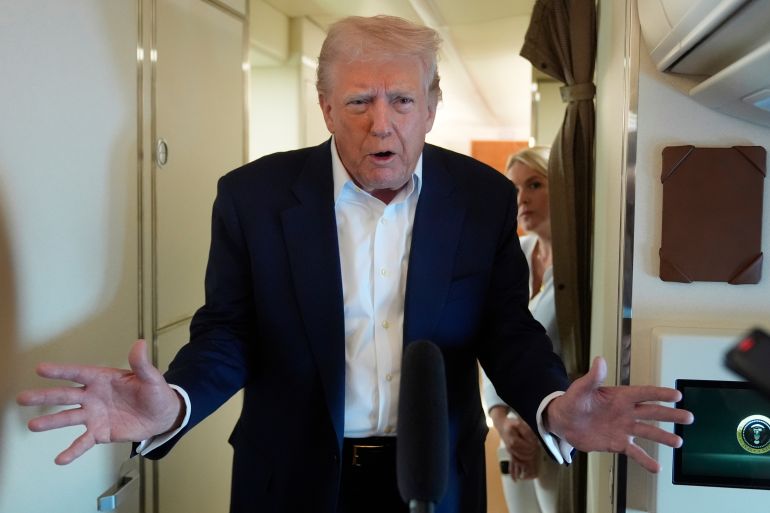## Hollywood Hold Up? Trump Threatens 100% Tariff on Foreign Films – Is This the End of Global Cinema?
Remember when Blockbuster was king? Remember those international flicks you’d stumble upon, hidden gems with subtitles that opened your world to new stories and cultures? Well, get ready for a potential reality where those days are gone.

Donald Trump, the man who never shies away from shaking things up, has just dropped a bombshell: a 100% tariff on all foreign films entering the US. Sounds like something out of a dystopian thriller, right? But this isn’t fiction.

Potential Impact on Gamers

While seemingly focused on the film industry, Trump’s proposed 100% tariff on foreign films inevitably ripples outward, impacting gamers in several key areas. The most direct effect is likely to be on the cost of foreign video games. A tariff of this magnitude would significantly increase the price of importing games from overseas, potentially making them less accessible to budget-conscious gamers.
Beyond the price point, the availability of foreign games could also be affected. Smaller studios or indie developers from countries with weaker economies might struggle to absorb the added cost of exporting to the US market, leading to a decrease in the diversity of games available to American players.
This isn’t merely a theoretical concern. The gaming industry is already grappling with supply chain disruptions and rising production costs. Adding a 100% tariff on foreign games further exacerbates these challenges, potentially squeezing margins and slowing down the release of new titles.

The Global Game Market
The global gaming market is deeply interconnected. The US is a major player, but it is not an isolated entity. Tariffs on foreign games would undoubtedly provoke retaliatory measures from other countries, creating a ripple effect that could harm the US gaming industry in the long run.

The Trade War Dimension
Trump’s tariff announcement is the latest salvo in an ongoing trade war that has seen significant tariffs imposed on goods ranging from steel and aluminum to consumer electronics. The gaming industry, while not a major export sector, is nonetheless caught in the crossfire.
The tariffs are a symptom of broader geopolitical tensions. They are intended to protect domestic industries and jobs, but they can also harm consumers and businesses by increasing the cost of goods and services. The trade war has already had a negative impact on the global economy, and it is unclear how it will ultimately be resolved.
National Security Concerns
Trump’s justification for the tariff, claiming it is a “National Security threat”, is particularly contentious. While concerns about intellectual property theft and foreign investment are valid, using tariffs as a primary tool to address these issues is widely criticized by economists and trade experts.
Overreliance on tariffs risks escalating tensions and undermining global cooperation, potentially leading to a more volatile and unpredictable international environment.
Logistical Nightmares
Implementing a 100% tariff on foreign films presents a number of logistical challenges. For starters, the US government would need to develop a reliable system for identifying and classifying foreign films. This would require significant resources and expertise, and it would be difficult to ensure accuracy.
Furthermore, the tariff would likely be met with legal challenges from foreign governments and film studios. They could argue that the tariff violates international trade agreements or that it is discriminatory.
Enforcement Issues
Enforcing a 100% tariff would be another major challenge. The US government would need to monitor imports and ensure that studios are complying with the new rules. This would require a significant increase in resources and manpower.
Given the global nature of the film industry, it would be difficult to effectively prevent the distribution of foreign films through non-traditional channels, such as streaming services or online piracy.
Beyond the Box Office: Cultural and Creative Consequences
Censorship Concerns
The most troubling potential consequence of Trump’s proposed tariff is the risk of censorship. A 100% tariff could be used as a tool to restrict the import of films that are deemed politically or culturally undesirable. This would limit the diversity of voices and perspectives available to American audiences and could ultimately undermine freedom of expression.
Diversity on Screen
Foreign films offer a valuable window into other cultures and perspectives. They expose audiences to different ways of life, beliefs, and values. By imposing a tariff on foreign films, the US government risks creating a more insular and less tolerant society.
The impact on representation would be particularly significant. A reduced influx of foreign films could limit the visibility of marginalized communities and cultures on screen, reinforcing existing biases and stereotypes.
The Global Village
The global entertainment market is increasingly interconnected. Filmmakers and artists from different countries collaborate on projects, share ideas, and learn from each other. Tariffs could fragment this global village, hindering creative collaboration and innovation.
The US has always been a leader in the global film industry. By imposing protectionist measures, the US risks undermining its own creative leadership and alienating international partners.
Conclusion
So, there you have it. Trump’s latest salvo in the trade war: a 100% tariff on all foreign films. The argument? Protectionism, boosting domestic production. The reality? A potential cultural earthquake.
This isn’t just about dollars and cents; it’s about access. A 100% tariff would cripple the international film industry, making foreign films prohibitively expensive for American audiences. It’s a move that could stifle creativity, limit exposure to diverse stories, and ultimately, warp the very fabric of American cinema. Will Hollywood thrive in this insular environment, or will we all lose out on the magic of global storytelling? The future of film, as we know it, hangs in the balance.
This isn’t just about movies. It’s about the stories we tell ourselves, the worlds we explore, and the understanding we build with each other. The question is, what kind of world are we choosing to build?